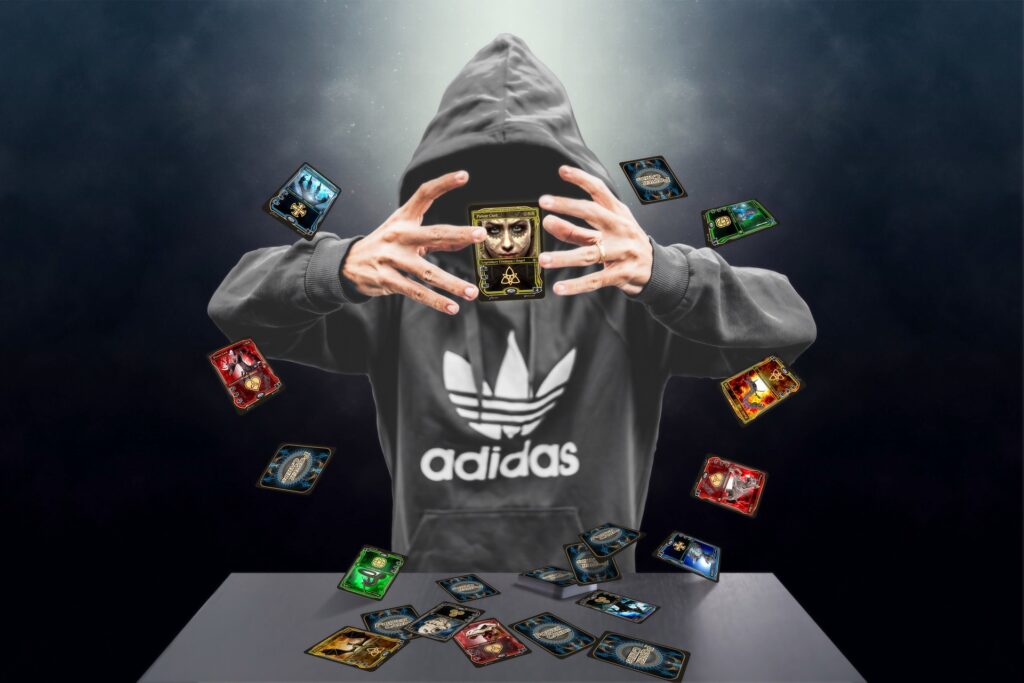How Do I Become A Professional Gamer? 8 Simple Steps
How Do I Become a Professional Gamer: Introduction
“How do I become a professional gamer?” If you’ve found yourself asking this question, captivated by the lucrative and thrilling landscape of competitive gaming, you’re in the right place. The world of professional gaming, once considered a subculture or a distant fantasy, has exploded into the mainstream, offering genuine career prospects for those willing to commit.
No longer relegated to the fringes of the sports world, eSports has become a billion-dollar industry, replete with sponsorships, merchandise, and even dedicated arenas. This seismic shift has paved the way for aspiring gamers like you to seriously contemplate gaming as a viable career.
In this comprehensive guide, we will delve into the critical steps for transforming your gaming hobby into a full-fledged profession. We’ll start by discussing how to hone your skills in your chosen game, examining the role of practice, coaching, and even the psychological aspects of competitive play. Then we’ll move on to the practicalities of building a compelling personal brand, because to be a professional, you’ll need more than just gaming skills—you’ll need a persona that attracts fans, sponsors, and opportunities.
We’ll also cover the importance of networking and finding the right gaming opportunities, from small-scale tournaments to major league competitions. After all, natural talent is a good starting point, but your career will be built on the connections you make and the chances you’re willing to seize.
So fasten your seatbelts and put your game face on. You’re about to embark on an exhilarating journey to becoming a professional gamer, navigating a world that’s as competitive as it is rewarding. Prepare to unlock levels you didn’t even know existed, in both your professional life and in the digital worlds you conquer.

How Do I Become A Professional Gamer: Choosing a Game to Specialize In
Research Popular Games
When deciding on a game to specialize in, it’s important to start by researching popular games within the competitive gaming scene. Look for games that have a large player base, active esports scene, and consistent updates and patches. This will ensure that you have a variety of tournaments and competitions to participate in, allowing you to showcase and improve your skills.
Consider Your Skills and Interests
While choosing a popular game is important, it’s equally crucial to consider your own skills and interests. Think about the type of games you enjoy playing and excel at. Are you more inclined towards strategy games or first-person shooters? Remember, you’ll be spending countless hours practicing and competing in this game, so it’s vital to choose one that you genuinely enjoy.
Assess the Competitive Scene
Before finalizing your decision, take the time to assess the competitive scene of the game you’re considering. Look into the current professional players, teams, and tournaments associated with the game. Evaluate the level of competition and determine if you believe you have the potential to compete at that level. It’s vital to have a realistic understanding of your chances and the amount of effort required to succeed.
How Do I Become A Professional Gamer: Developing Your Skills and Knowledge
Practice Consistently
To become a professional gamer, consistent practice is key. Dedicate a significant amount of time each day to hone your skills in your chosen game. Set goals for yourself, such as mastering specific techniques or improving your reaction time. Consistency and perseverance will propel you towards your goal of becoming a professional gamer.
Study Game Mechanics and Strategies
While practice is important, it’s equally necessary to study the game mechanics and strategies. Understanding the ins and outs of the game will give you an edge over your opponents. Watch tutorial videos, read guides, and join online forums or communities where experienced players share their knowledge. The more you learn about the game, the better equipped you’ll be to make strategic decisions during competitions.
Learn from Professional Gamers
One of the best ways to improve your skills and knowledge is by learning from professional gamers. Watch live streams, tournaments, and replays of top players in your chosen game. Observe their playing styles, strategies, and decision-making processes. Following and analyzing their gameplay will provide valuable insights that you can incorporate into your own approach. Additionally, consider joining online communities where you can interact with and learn from experienced players.
How Do I Become A Professional Gamer: Building Your Gaming Setup
Invest in a High-Quality Gaming PC or Console
A high-quality gaming setup is essential for optimal performance and gameplay. Invest in a gaming PC or console that meets the requirements of your chosen game. Consider factors such as processing power, graphics capabilities, and overall performance. Ensure that your hardware can handle the demands of competitive gaming without any lag or disruptions.
Purchase Essential Gaming Accessories
In addition to a gaming PC or console, there are several essential accessories that you’ll need to enhance your gaming experience. Invest in a comfortable gaming chair to support your posture during long gaming sessions. A high-quality gaming mouse and keyboard designed for precision and responsiveness are also crucial. Other accessories such as a gaming headset and mousepad can further enhance your performance and overall gaming experience.
Ensure a Stable and Fast Internet Connection
A stable and fast internet connection is crucial for competitive gaming. Look for an internet service provider (ISP) that offers high-speed and reliable internet in your area. This will ensure minimal latency and lag during online matches, giving you a competitive advantage. Consider using a wired connection instead of relying solely on Wi-Fi to further minimize latency issues.
Joining Competitive Gaming Communities
Find Online Gaming Communities
Joining online gaming communities is a great way to connect with fellow gamers who share your passion. These communities provide an opportunity to learn and grow through interaction with like-minded individuals. Look for forums, social media groups, and online platforms dedicated to your chosen game. Engage in discussions, ask questions, and seek advice from experienced players. Building connections within these communities can lead to opportunities for collaboration and growth.
Participate in Local Gaming Events
Participating in local gaming events is another effective way to immerse yourself in the competitive gaming scene. Whether it’s a small LAN party or a local tournament, these events will provide valuable experience and exposure. Engage with other players, spectate matches, and build relationships with organizers and fellow gamers. Taking part in these events can also help you gauge your own skills and progress as a competitive gamer.
Network with Other Gamers
Networking is an invaluable aspect of any professional career, and professional gaming is no exception. Attend gaming conventions, esports tournaments, and industry events to network with other gamers, influencers, and professionals in the gaming industry. Exchange contact information, build relationships, and stay connected through social media platforms. Networking can open doors to new opportunities, such as sponsorships, partnerships, and collaborations.

Entering Competitive Tournaments
Start with Small Local Tournaments
When embarking on your journey to become a professional gamer, your first stop should be small, local tournaments. These tournaments are ideal for several reasons. Firstly, they offer a lower barrier to entry, both in terms of skill level and cost. Many local tournaments have modest entry fees and offer prizes that, while not large, can help you invest in better gaming equipment or cover the costs of future tournament participation.
Local tournaments also offer the advantage of being in a controlled and familiar environment, often within your own community. This helps reduce variables like travel fatigue and unfamiliar settings, allowing you to focus solely on your gameplay. Moreover, local competitions give you a chance to network with nearby players and teams, providing valuable opportunities for future collaborations.
Lastly, small tournaments serve as a training ground where you can get a feel for competitive pressure. The experience of playing under tournament conditions is different from casual gaming or online play. You’ll learn how to manage nerves, how to adapt to different opponents, and how to work as part of a team if you’re playing a team-based game.
Join Amateur Leagues and Online Competitions
Once you’ve cut your teeth on local tournaments and have a couple of wins or good performances under your belt, it’s time to venture into amateur leagues and online competitions. The internet has democratized competitive gaming to an extent, with various platforms offering leagues and competitions for players of all skill levels.
Amateur leagues and online platforms often feature a broader range of skill levels and playstyles, making them an excellent training ground for improving your gameplay. They offer a more structured environment than casual play, with set schedules, official rules, and oversight by league administrators. These factors mimic the conditions you’ll face in professional competitions, making amateur leagues a valuable practice arena.
Additionally, online competitions allow you to pit your skills against a diverse array of competitors from different regions or even countries. This exposure is invaluable for growth. Study the gameplay of those who are more skilled than you, understand their strategies, and learn from your mistakes to continuously improve.
Strive to Qualify for Major Esports Events
As you continue to level up your skills and gain more exposure in the amateur circuit, the ultimate goal is to qualify for major esports events. These high-profile tournaments are the epitome of competitive gaming, often featuring international competitors and substantial prize pools that can run into the millions of dollars. Qualifying for such an event is not just an accomplishment in itself, but it also serves as a significant stepping stone for your career.
To reach this stage, you’ll need to commit to rigorous training, disciplined practice schedules, and possibly even engage in professional coaching. Participation in online qualifiers is usually the first step toward gaining entry into these large-scale events. These qualifiers are highly competitive, and you’ll need to prepare extensively.
Remember, the journey to qualify for major esports events is a marathon, not a sprint. Along the way, aim to build your reputation by consistently performing well in smaller tournaments and online leagues. Develop relationships with mentors, coaches, and team members who can guide you through the intricacies of high-level competition. Keep an eye on your ultimate goal, but focus on the incremental steps you need to take to get there. By adopting this approach, you’ll be well on your way to making a mark in the world of professional gaming.
How Do I Become A Professional Gamer: Building Your Brand
Create an Online Presence
In the digital age, building your brand is almost synonymous with establishing a robust online presence. Your online platforms serve as the first point of contact for many potential followers, supporters, and even sponsors. Choose social media platforms that are conducive to gaming content, such as Twitch for live streaming, YouTube for gameplay videos and tutorials, Twitter for quick updates, and Instagram for behind-the-scenes content and lifestyle posts.
Ensure that your online persona reflects who you are both as a gamer and as an individual. Choose a recognizable username, logo, and theme that you can consistently use across all platforms to create brand continuity. Regularly update these platforms with a variety of content that showcases not just your gaming skills but also your understanding of the game, your unique personality, and your life as a gamer. Use high-quality thumbnails, descriptions, and tags to make your content easily discoverable. Also, consider scheduling your posts and streams at times when your target audience is most active to maximize reach.
Engage with Your Audience
Audience engagement is a cornerstone of brand-building. The more you interact with your followers, the more invested they become in your journey. Make it a practice to respond to comments on your posts or during live streams. Allocate specific times for Q&A sessions where you answer questions from your audience about your gaming setup, strategies, or your experience as a gamer. Use interactive features like polls, challenges, and giveaways to encourage participation and keep your audience engaged.
Further, don’t just wait for your audience to come to you; be proactive. Share content from other gamers or industry news and initiate conversations around them. Comment on trends or breaking news in the gaming world. By doing so, you position yourself as a thought leader in the gaming community, someone worth listening to beyond just gameplay.
Collaborate with Other Content Creators
Collaboration is a powerful tool in extending your brand’s reach. Identify content creators who share a similar target audience but are not in direct competition with you. For instance, if you’re a professional player of a particular game, collaborating with someone who specializes in another aspect of the game (like game lore or fan art) can be beneficial. Such collaborations can take many forms: dual streams, feature videos, interviews, or even just social media shoutouts.
Before approaching potential collaborators, make sure you are well-acquainted with their content and style. This will help you propose a collaboration idea that aligns with both your brand identities. Collaboration should be a win-win scenario; each party should gain something from the partnership, whether it’s content, exposure, or experience.
Additionally, collaborations often offer the opportunity for cross-promotion. Your collaborator’s audience gets introduced to you and vice versa, increasing both parties’ visibility. This could lead to an uptick in followers or subscribers and potentially more engagement on your respective platforms.
By focusing on these three crucial areas—establishing an online presence, engaging with your audience, and collaborating with other creators—you’ll create a strong foundation for your brand as you climb the ranks in professional gaming. A robust personal brand not only makes you more appealing to sponsors but also creates a devoted community that will support you throughout your career

Seeking Sponsorship and Partnerships
Prove Your Skill and Professionalism
To attract potential sponsors and partnerships, it’s crucial to prove your skill and professionalism as a gamer. Consistently perform well in tournaments, maintain a positive attitude, and display good sportsmanship. Showcase your achievements and milestones through your online presence and highlight any relevant accolades or accomplishments. Demonstrating your dedication and professionalism both in and out of the game will make you an attractive prospect for sponsors.
Approach Potential Sponsors
When seeking sponsorship and partnerships, it’s important to approach potential sponsors professionally. Research companies that align with your personal brand and would be a good fit for your gaming career. Craft a well-written sponsorship proposal that highlights why you would be a valuable asset to their brand. Emphasize your achievements, reach, and the potential benefits they can gain from supporting you. Reach out to them via email or social media and follow up with any requested information.
Negotiate and Secure Sponsorship Deals
Once you’ve established initial contact with potential sponsors, it’s time to negotiate and secure sponsorship deals. Ensure that the terms of the partnership align with your goals and expectations. Consider factors such as financial support, product endorsements, and exposure opportunities. Seek legal advice if needed to ensure all agreements are fair and beneficial for both parties. With a well-negotiated sponsorship deal, you’ll have the necessary support to further develop your gaming career.
Maintaining Physical and Mental Health
Exercise Regularly and Maintain a Healthy Diet
Being a professional gamer requires both mental and physical stamina. Regular exercise and a healthy diet play a crucial role in maintaining optimal performance. Allocate time for physical activities such as cardio exercises, strength training, or yoga to improve focus, stamina, and overall well-being. Similarly, maintain a balanced diet with proper nutrition to support your brain function and energy levels during intense gaming sessions.
Manage Your Sleep Schedule
Adequate sleep is essential for cognitive function and overall well-being. Establish a consistent sleep schedule that allows for sufficient rest and recovery. Prioritize quality sleep by creating a relaxing environment, avoiding screens before bedtime, and practicing a bedtime routine. Sufficient sleep will help enhance your reaction time, decision-making abilities, and overall cognitive performance during gaming sessions.
Practice Stress Management Techniques
Professional gaming can be highly demanding and stressful at times. To maintain optimal mental health, it’s crucial to practice stress management techniques. Incorporate relaxation techniques such as deep breathing exercises, meditation, or mindfulness into your daily routine. Take breaks when needed to recharge and avoid burnout. Additionally, consider seeking support from mental health professionals or joining support groups specifically tailored to the challenges faced by professional gamers.

Continued Learning and Adaptation
Stay Up-to-date with Game Updates and Patch Notes
To stay competitive as a professional gamer, it’s vital to stay up-to-date with game updates and patch notes. Developers often introduce changes to gameplay mechanics, balance, and introduce new features. Keeping yourself informed about these updates will help you adapt your strategies and gameplay accordingly. Follow official news sources, community forums, and social media pages related to your game to stay informed about any changes.
Analyze and Review Your Gameplay
Regularly analyzing and reviewing your own gameplay is a crucial part of improving as a professional gamer. Record your matches or stream your sessions to review later. Pay attention to your decision-making, positioning, and mechanics. Look for areas of improvement and identify any recurring mistakes or weaknesses. Being self-critical and actively seeking ways to enhance your gameplay will contribute to continued growth and development.
Learn from Your Mistakes
Mistakes are not failures but valuable learning opportunities. Instead of dwelling on losses or setbacks, take the time to learn from them. Analyze what went wrong, why you made certain decisions, and how you can improve in similar situations. Embrace a growth mindset and view every mistake as a chance to become a stronger and more resilient player. The ability to learn from your mistakes will ultimately contribute to your long-term success as a professional gamer.
Preparing for a Career Transition
Create a Backup Plan
While pursuing a career as a professional gamer is an exciting endeavor, it’s important to create a backup plan for the future. Professional gaming careers can be volatile, and it’s wise to have alternative options in case circumstances change. Consider pursuing higher education or acquiring additional skills that could be valuable in other industries. Building a portfolio of transferable skills will provide you with a safety net and open doors to diverse career opportunities.
Pursue Higher Education and Skill Development
Higher education and further skill development can complement your professional gaming career. Consider pursuing a degree or certification in a field that interests you outside of gaming. This will not only broaden your knowledge base but also equip you with valuable skills such as critical thinking, communication, and problem-solving. Look for opportunities to develop skills such as content creation, marketing, or event management, which can enhance your prospects in the gaming industry.
Seek Professional Guidance
When planning for a career transition, seeking professional guidance can be invaluable. Consult with career counselors, industry professionals, or mentors who have experience navigating the gaming industry. They can provide insights, advice, and guidance as you make decisions about your future. Utilize their expertise to help align your professional goals and ambitions with practical steps for a successful career transition.
By following these steps and persevering through challenges, you can increase your chances of becoming a professional gamer. Remember, it’s a journey that requires dedication, continuous learning, and adaptation. Good luck on your path to success in the world of professional gaming!




